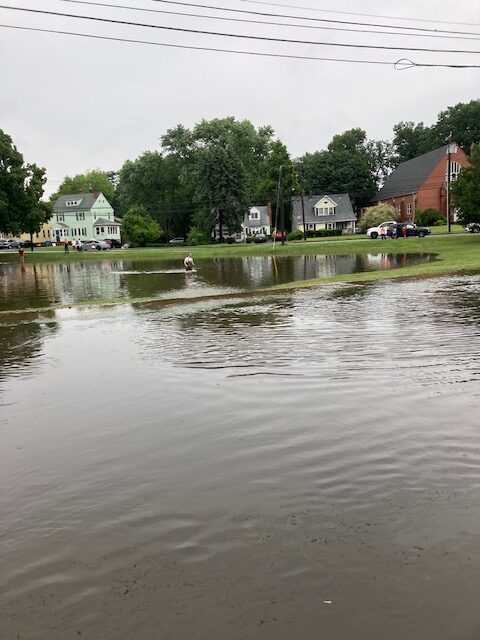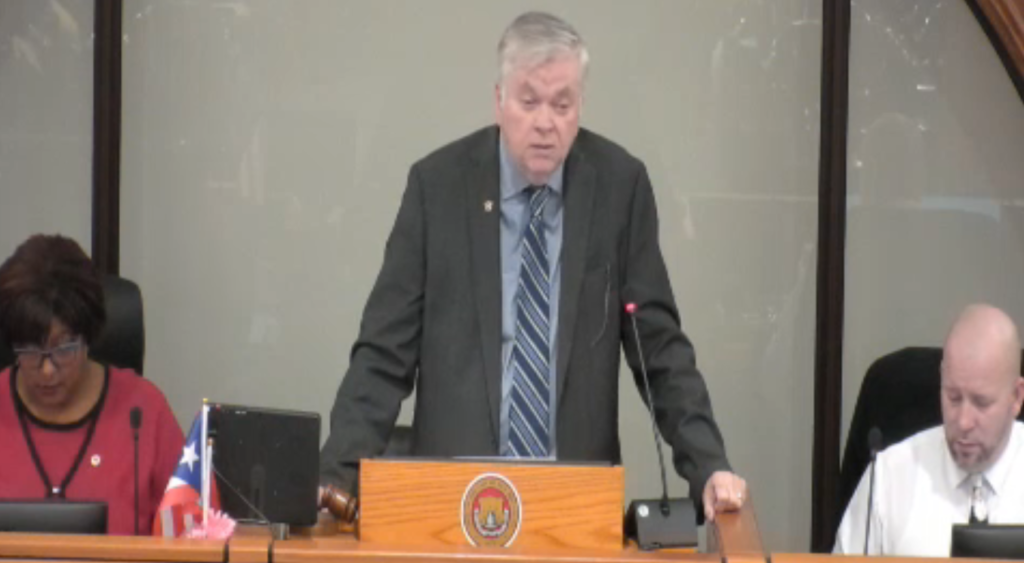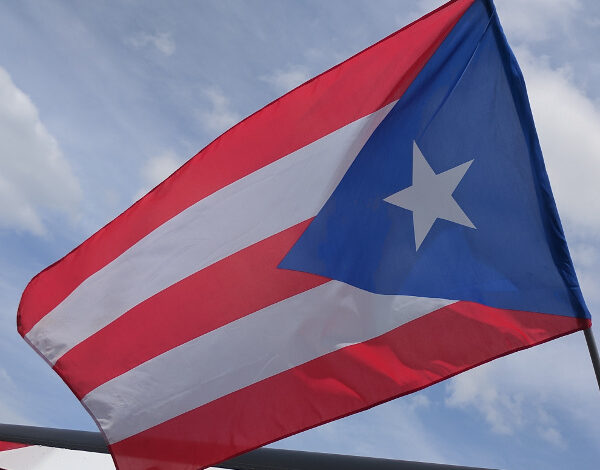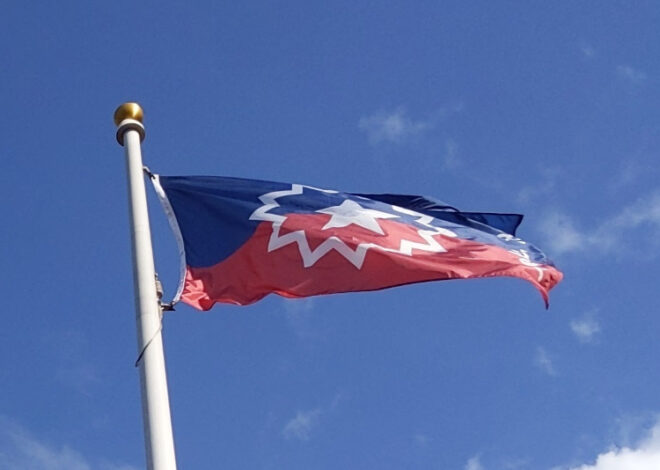NEW BRITAIN – Common Council Democrats are proposing a neighborhood flood relief initiative to “provide immediate and direct relief to homeowners whose properties are damaged by storm water and sewage when extreme weather leads to flooding and damages.”
A resolution, introduced by Common Council President Francisco Santiago (D-5), Assistant Majority Leader Iris Sanchez (D-3) and Majority Leader John McNamara (D-4), is on the agenda at the September 25th Common Council meeting.
The “Neighborhood Flood Relief Pilot Program” would provide up to $7,500 in assistance to eligible owner-occupied homes from one to three units contingent on available funds “to reduce or eliminate the risk of repeat damage to basements, buildings and mechanical systems not covered by insurance or other sources.” The resolution calls for use of an estimated $500,000, which is a portion of an additional $2,864,147 in unallocated state municipal aid approved by the Legislature last May.
Eligible activities and improvements will involve funding for sump pumps, French drains, lateral replacement, window wells, basement windows, gutters, drain snaking , video camera inspections, sewer jetting, basement cleanouts, new boilers, hot water heaters, electrical components and related mold remediation, according to the resolution.
Democratic Caucus Update – New Britain Common Council
Extreme weather events brought on by accelerated climate changes are increasing the threat to property and public health in vulnerable neighborhoods of New Britain, the resolution states.
“Since July 2023 floods in neighborhoods most at risk from hazardous weather have become routine and are increasing.” said Majority Leader McNamara. “The outmoded storm water-sewage system has caused problems for decades, with homeowners incurring out of pocket expenses and the eventually loss of insurance. The conditions are causing an increase in claims of injury to property, adding to higher insurance costs for city government.”
“Dilapidated storm water and sewer mains are not effective in handling overflows that result in street flooding and flooding into homes and property whenever intense storms occur,” said McNamara, who also serves as Council liaison to the Board of Public Works. “This initiative is a start at reducing damages to homes as the city seeks state and federal support for capital improvements to modernize the system.”
Through the FLUSH program (Fresh Line Upgrades for Sanitary Health) and the Capital Improvement Program (CIP) the city’s Department of Public Works has identified projects that will replace aging and broken infrastructure to reduce the risk to residences and neighborhoods. At the September 11th Council meeting alderpersons approved three projects to address the problem:
- $2,147,634 was approved to address chronic flooding in the Overlook Avenue-McKinley Drive area with most of the funding coming from the remainder of American Rescue Plan Act (ARPA) money awarded to the city.
- Planning continues with $80,000 more in site engineering work for Allen Street area stormwater and sewage improvements. The project will cost an estimated $13.9 million to be funded with up to a $9.4 million state bond funds and $4.2 million in city matching funds.
- Using remaining American Rescue Plan (ARPA) funding $13,490,285 million was approved to implement Phase 3 of the FLUSH program on the southeast side of the city between John Downey Drive and East Street.
In proposing a pilot flood relief initiative similar to programs in other cities, McNamara said the direct aid project can be a catalyst for more state and federal support to municipalities to deal with flooding damage to infrastructure and properties. He cited the the implementation of a similar program in Hartford three years ago and the release of a flood mitigation study this month from the CT Conference of Municipalities (CCM) that “outlines a series of strategic interventions tailored to the state’s unique environmental and infrastructural needs.”
Regular Common Council meetings are held on the second and fourth Wednesdays of the month, except for July and August. Public participation in person and via remote call in begins at 7 p.m. at City Hall in the Council Chambers , 27 West Main Street.





